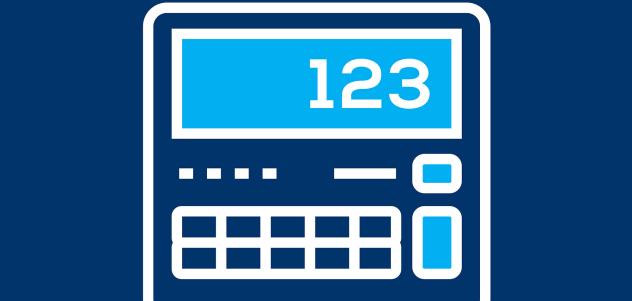Your Guide to Health Savings Accounts
HSAs – manage healthcare costs for today and in the future
A health savings account (HSA) is a smart tool that can help your employees prepare for their future healthcare expenses and manage day-to-day medical costs. Some people use their HSAs to pay healthcare bills as they come in, while others prefer to save for future needs. Because funds in an HSA never expire, your employees have an opportunity to build their balance over time.
Your HSA Resources
Helpful information about your HSA
- Quick Guide to HSAs
Brief one page overview of HSAs and how they work. - HSA Accountholder Brochure
Detailed 8 page guide to Health Savings Accounts. - Top Questions About HSAs
Answers to the most commonly asked questions about HSAs. - Saving and Spending HSA Dollars
Guide to saving and spending with your HSA. - HSA Contribution Rules Married
Detailed HSA Contribution rules for this year and next year. - HSAs and Medicare
Things to consider related to your HSA if enrolling in Medicare. - UMB HSA Saver® Enrollment Guide
Investing in your HSA enrollment guide. - Help Prevent HSA Debit Card Fraud
Actions you can take to help prevent fraud on your HSA.
Helpful guides to get the most out of your HSA
- HSA Online Banking and Education
How to set up and access your account online. - HSA Online Banking Tour Video
UMB HSA Online Account Management video. - HSA eStatements Selection
How to change your UMB HSA account to eStatements. - Receipt Vault
Organize and track your healthcare receipts online. - HSA Beneficiary Designation FAQs
Frequently asked questions on beneficiary designation. - HSA Qualified Medical Expenses
Guide to Qualified Medical Expenses. - HSA Interest Rate Schedule
Current Health Savings Account Interest Rate Schedule. - HSA Income Tax Checklist
Summary of IRS forms needed to file Federal Income Tax Return.
Your guides to investing with UMB HSA Saver®
Investments in securities through UMB HSA Saver are:
NOT FDIC INSURED • MAY LOSE VALUE • NOT BANK GUARANTEED
- Investing with HSA Saver Brochure
Invest your way, simply, from anywhere, with confidence. - HSA Saver List of Mutual Funds
Current list of fund options for your UMB HSA Saver® portfolio. - HSA Saver Video
Investing your way with confidence video. - UMB HSA Saver® Enrollment Guide
Investing in your HSA enrollment guide.
HSA Helpful Resources

Frequently Asked Questions
You have questions. We have the answers. Please use our FAQs below to find answers to the most commonly-asked questions on HSAs and HSA debit cards.

Calculators
Use our HSA calculators to determine how much to save and compare HDHP with traditional health plans

Mid-year HSA changes
It is important to understand the rules and regulations that come with having an HSA as there are limits to how much you can contribute to your HSA.
HSA Contribution Limits1
Are you 55 or older? If so, you could be making extra "catch-up" contributions
Year |
Single |
Family |
|---|---|---|
|
2025 |
$4,300 |
$8,550 |
|
2026 |
$4,400 |
$8,750 |
See full table of contribution limits, minimum deductible and maximum out-of-pocket expenses.
HSA Eligible Expenses
View the list of qualified HSA Expenses.

Investments³
Your HSA is much more than an account for medical expenses. The UMB HSA provides you with investment options to help you reach your financial goals.
Using your HSA
An HSA is a great place to build up savings for expenses you have today or will have in the future. Watch this informative video on how to use your HSA.
Contact us
Service Center hours:
Monday through Friday, 7 a.m. to 7:30 p.m. CT
Saturday, 8 a.m. to 5 p.m. CT
What is a Consumer-Directed Health Plan (CDHP)?
A Consumer-Directed Health Plan (CDHP) is typically used to describe health insurance plans with a Health Savings Account (HSA), Health Reimbursement Account (HRA), or Flexible Spending Account (FSA) component. The high-deductible plan covers preventive care for free and provides coverage for catastrophic illness and injuries after a deductible has been met. There is a built in safety net as these plans also include a maximum out-of-pocket amount per year. The HSA or HRA can be used to pay for expenses not covered by the high-deductible insurance plan. Depending on the type of reimbursement account (HSA, HRA or FSA), the funds may roll over from year to year, accumulate interest and have tax advantages.
Investments in securities through UMB HSA Saver are:
Not FDIC Insured • May Lose Value • No Bank Guarantee
1UMB Investment Management selects mutual funds in various asset classes for inclusion in the UMB HSA Saver® Investment Program. UMB Investment Management is a department of UMB Bank, n.a. UMB Bank, n.a. is a wholly owned subsidiary of UMB Financial Corporation.
UMB Custody Services provides safekeeping and settlement of the mutual fund investments in the UMB HSA Saver investment program. UMB Custody Services is a division of UMB Bank, n.a.
2Generally, data on mutual funds is provided by Morningstar, Inc. Although UMB believes the data gathered from these third party sources is reliable, it does not review such information and cannot warrant it to be accurate complete or timely. UMB is not responsible for any damages or losses arising from any use of this third-party information.
3All mention of taxes is made in reference to federal tax law. Neither UMB Bank n.a., nor its parent, subsidiaries, or affiliates are engaged in rendering tax or legal advice and this document is not intended as tax or legal advice. States can choose to follow the federal tax-treatment guidelines for HSAs or establish their own; some states tax HSA contributions. Please check with each state’s tax laws to determine the tax treatment of HSA contributions, or consult your tax adviser.
All mention of taxes is made in reference to federal tax law. Neither UMB Bank n.a., nor its parent, subsidiaries, or affiliates are engaged in rendering tax or legal advice and this document is not intended as tax or legal advice. States can choose to follow the federal tax-treatment guidelines for HSAs or establish their own; some states tax HSA contributions. Please check with each state’s tax laws to determine the tax treatment of HSA contributions, or consult your tax adviser.
Funds in an HSA Deposit Account are held at UMB Bank, n.a., Member FDIC.
